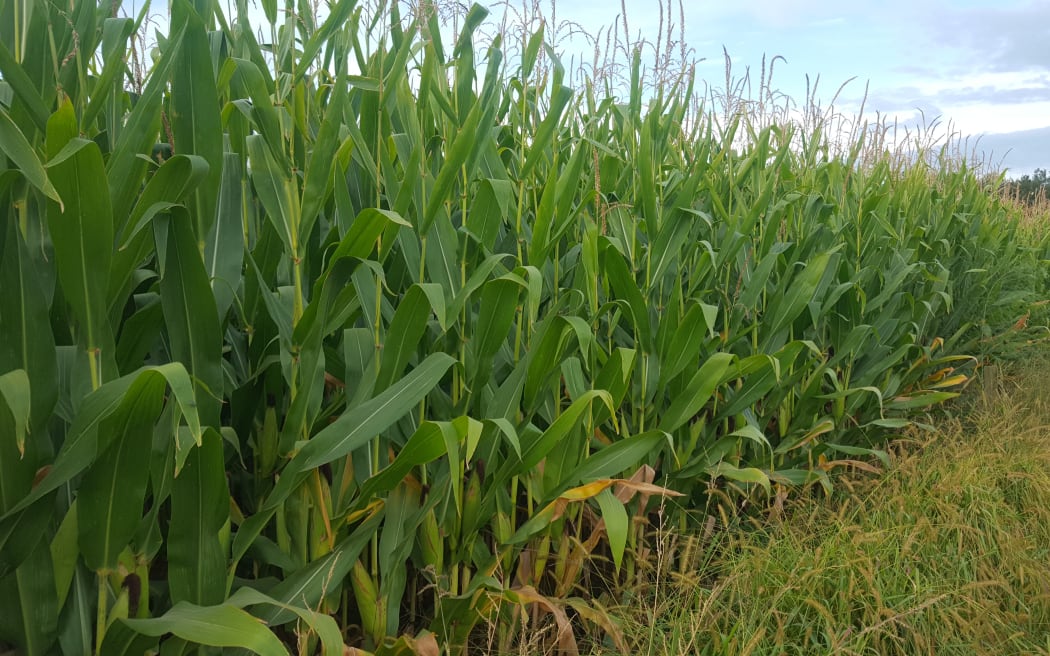
There have now been 45 positive detections of fall armyworm in North Island maize and sweetcorn crops. (file picture) Photo: Susan Murray/RNZ
The number of farms confirmed as having an invasive pest that has wreaked havoc on crops overseas has spiked in the past fortnight.
First discovered in New Zealand in March last year, the fall armyworm can chew through more than 350 plant species.
The Ministry for Primary Industries (MPI) said there had now been 45 positive detections of the pest in North Island maize and sweetcorn crops, with 17 of those detections occurring in the past two weeks.
MPI biosecurity response director John Walsh said a further 45 farms had reported possible sightings.
The ministry's biosecurity response had recently been focused on scouting and surveillance in key regions to understand the timing and scale of fall armyworm (FAW) incursion, Walsh said.
"This will enable targeted management measures to be developed," he said.
"With warmer weather and increasing awareness of FAW, we expect reporting to increase over the next few weeks. We'd like farmers and growers to keep a lookout for FAW on their properties."
Foundation for Arable Research business operations manager Ivan Lawrie said the industry was working with the government on the response to the pest.
FAW thrived and did more damage to crops in warmer climates, Lawrie said.
"This is a new pest to New Zealand, and whilst we have international literature and we have some modelling data of what we think it might do, there are still uncertainties as [to] how this will evolve within the New Zealand territory."
There were some treatment options available for growers, including an on-label pesticide for use in maize and sweetcorn, Lawrie said.
There were also more than 200 traps set up in key growing regions to help monitor for the pest.
"Those get checked periodically once a week ... But there is no substitute for actually growers monitoring their crops and seeing if there's any actual caterpillar damage there."



